‘He lived among people’: Zainab Nasrallah reflects on her iconic father’s life and legacy
By Hiba Morad
The martyred leader of the Lebanese resistance movement lived a simple life in regular residential apartments in the Lebanese capital and never went underground, his daughter told the Press TV website in an exclusive conversation.
This remained the case from 2006, when Hezbollah decimated the Israeli occupation and forced it to retreat, until the launch of Israel's fresh and all-out aggression against Lebanon in September.
According to Zainab Nasrallah, the daughter of former Hezbollah Secretary-General Sayyed Hassan Nasrallah, the underground headquarters of the resistance movement was constructed specifically for times of war and periods when the battle against the Israeli occupation became intense.
“Sayyed Hassan never used these underground areas in his daily life. They were built for wartime use, and until the fresh Israeli aggression on Lebanon began, he resided in apartments no lower than the 5th, 6th, or 8th floors,” she said in a freewheeling conversation with the Press TV website.
On September 27, amid indiscriminate aerial bombardments, the Israeli occupation army dropped over 80 tons of US-made bunker-buster bombs on the southern suburb of Dahiyeh in Beirut, resulting in the assassination of Sayyed Nasrallah and his associates in their underground headquarters.
His cowardly assassination came after top-ranking Hezbollah commanders such as Fuad Shukr and Ibrahim Aqil were martyred in separate attacks and before the assassination of the executive council head of the Lebanese resistance movement, Sayyed Hashem Safiuddin.
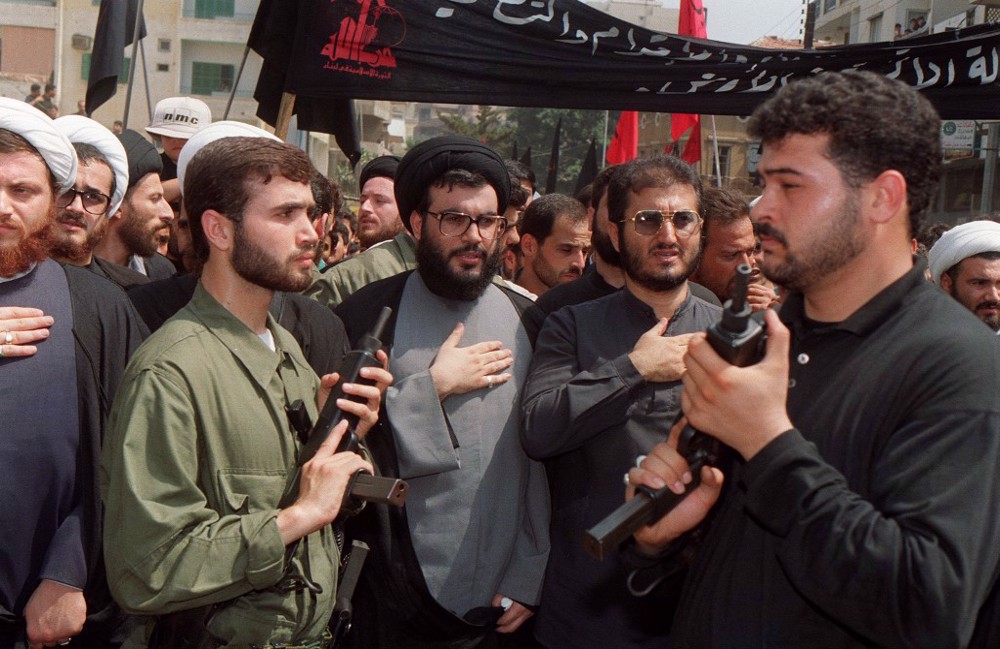
Among the people
Zainab said her father lived among the people. While some security measures were necessary to protect him—an iconic leader for the resistance axis, respected by millions worldwide, and regarded as the number one enemy of the Israeli apartheid regime—he maintained a lifestyle close to ordinary citizens.
“My father lived like any other person, in typical apartments, as I mentioned. However, since he was assassinated in the underground headquarters, some may have believed that Sayyed Nasrallah was living underground—a false narrative that the Israeli enemy has consistently tried to propagate,” she said, responding to the reports that the Hezbollah leader lived in underground bunkers.
“This is completely untrue, and everyone should be aware of this.”
Zainab also pointed out that Israeli Channel 12 falsely reported her death, claiming she had been killed in one of the Israeli strikes. This fabrication, she asserted, is part of the stream of blatant lies and disinformation Israel has propagated throughout the war and in previous years regarding the resistance.
“He would drive in his car with comrades to observe the situation outside. He was never in hiding. He would take trips around Dahiyeh to check on the people, hospitals, mosques, and shops, ensuring that everything was okay,” she said, referring to the martyred leader’s simple day-to-day activities.
“Of course, he always had to be cautious about protecting himself, as Israel sought to assassinate him. Israel aimed to silence him, believing that by killing him, they could destroy the resistance. However, the Israeli regime is completely mistaken in this belief.”
Sayyed Nasrallah, his daughter stated, was aware of the threats to his life and protected himself to “continue the work” that he was passionate about even though he always yearned for martyrdom.
“He knew he would eventually be martyred for defending the cause. He stated multiple times that the US was willing to offer anything in exchange for halting our struggle with Israel. However, he was never hesitant to continue his resistance against Israeli occupation and American dominance,” Zainab said.
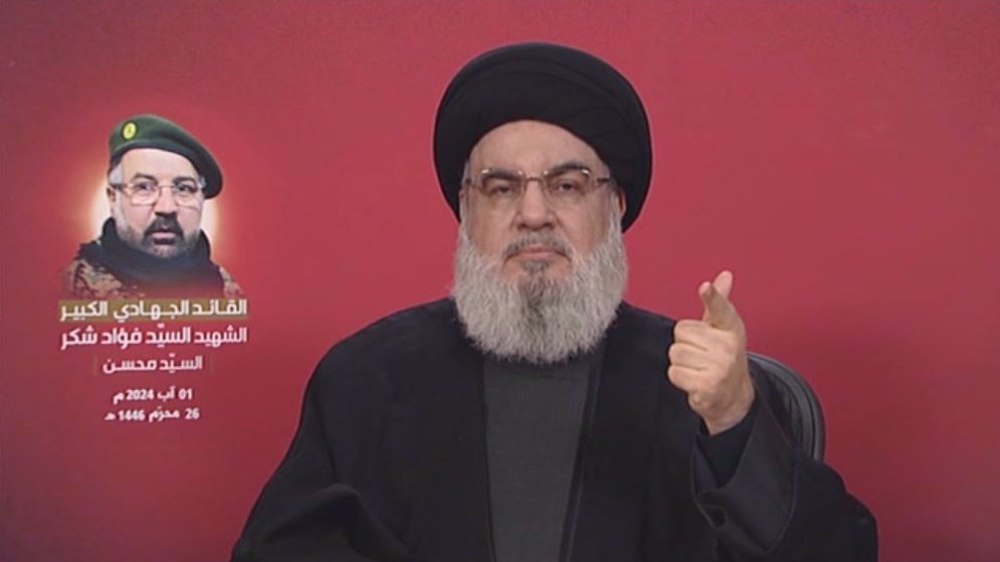
A loving father, a great leader
Apart from being an unshakeable pillar of the Axis of Resistance and a great champion of the Palestinian cause, Sayyed Hassan Nasrallah was also a family man, a loving father and a doting grandfather but rarely had time to meet them.
“We used to meet him only a few times a year due to his immense responsibilities and security concerns, but those moments were truly precious. We would gather as a family—children and grandchildren—and enjoy wonderful times together. He would inquire about each of us and ensure that we were doing well,” Zainab told the Press TV website.
“The grandchildren would sometimes argue over who would sit next to him, occasionally getting loud. When we tried to calm them down or asked them to stop playing for a while, he would say, ‘It’s okay; they are kids who need to play happily, release energy, and make noise’.”
Zainab said their discussions primarily revolved around religious subjects and they thoroughly enjoyed those enriching conversations with him whenever they had the opportunity to reunite as a family.
“We rarely discussed politics unless we had pressing questions about pivotal issues and sought to gain a better understanding of the situation,” she noted.
Zainab described the martyred Hezbollah leader as a “loving father, a well-mannered individual, and a deeply affectionate human being,” who was filled with genuine empathy for those around him.
“We loved him immensely even before he became the leader of Hezbollah. He was a remarkable person with a kind demeanor and a multi-dimensional personality,” she told the Press TV website.
“He was not only an exceptional father but also an outstanding leader, taking on the responsibility of defending Lebanon, Palestine, and the sacred Islamic sanctities. He stood firm against hegemonic powers while millions around the world watched silently as innocent lives were lost and brutality unfolded. He was a man of great faith.”
Zainab said when their father was appointed the Secretary-General of Hezbollah following the assassination of his predecessor Sayyed Abbas Musawi in February 1992, they all felt a “heightened sense of responsibility” knowing that he was now a transnational leader followed by millions globally.
“We understood we would see him less frequently and prayed for his safety, for he was not only our father but the father of an entire nation,” she remarked.
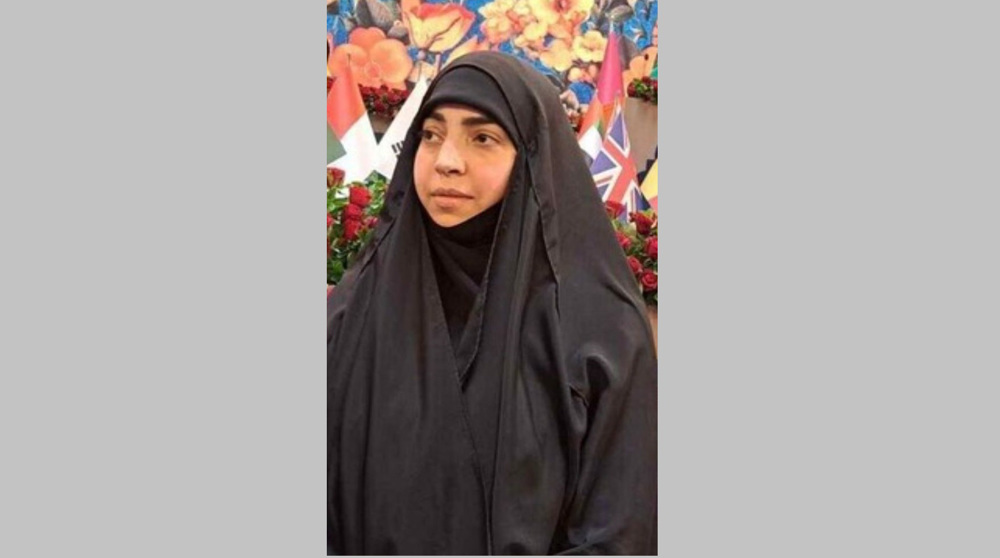
“His presence in our lives, his voice resonating everywhere, his words of wisdom, and his appearances on screen addressing hundreds of thousands will all be missed. People have expressed their grief over his loss and their longing for his presence among us, just as my family and I miss him.”
However, the bereaved daughter hastened to add that her father “remains alive” as an inspiration for her family and millions around the globe who believe in the principles that Sayyed Nasrallah upheld.
“His words and teachings will always guide us. His memory has become a source of strength, inspiring greater determination to fight for justice in this region against the Israeli apartheid regime,” Zainab said.
Lives that mattered
Sayyed Hassan Nasrallah, as the leader of the Islamic resistance in Lebanon, cared deeply about the Lebanese nation and people’s welfare mattered the most to him, Zainab told the Press TV website.
“To Sayyed Hassan, the lives of people truly mattered. Their economic conditions, the healthcare system, and the needs of the community were always on his mind. He was dedicated to helping others in every way possible and at every level possible,” she noted.
“He was sensitive to their feelings and deeply cared about avoiding any harm to them. He would often remind us that even if we had the chance to drive the finest cars—which we didn’t—we must refrain. We must embrace our responsibilities and empathize with our people.”
The martyred Hezbollah leader had a simple lifestyle and very deeply believed in simplicity.
“He led a simple lifestyle because he believed in the importance of simplicity and refraining from attachment to material things. He sought to experience life as the humble classes in society do,” Zainab explained, referring to the way her father lived.
“I am proud to say my father sacrificed his personal life, his young son Hadi who was martyred, and himself for the sake of the people and the cause.”
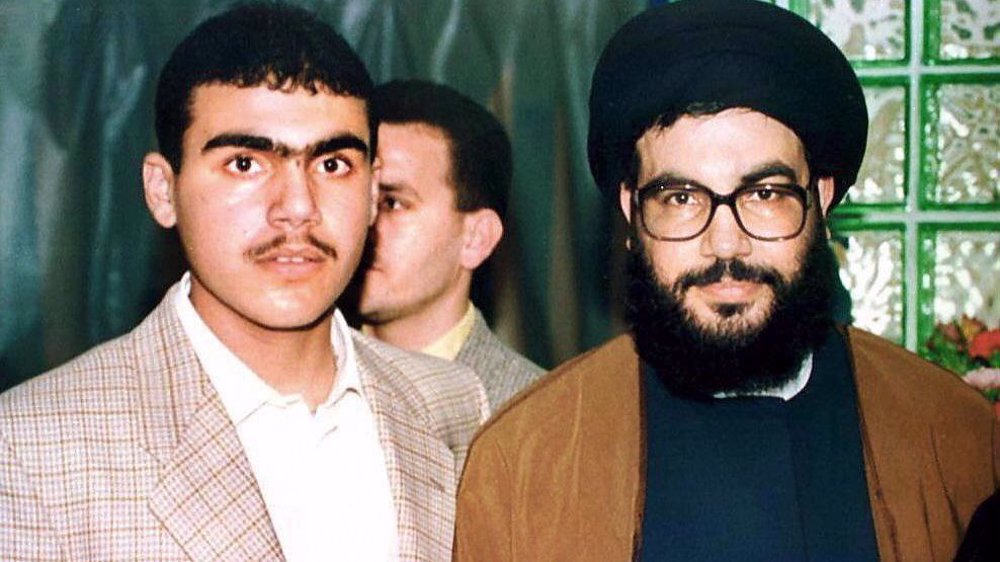
Steadfast in Lebanon
Zainab and the rest of the members of her family remained in Lebanon throughout the latest war, despite numerous invitations to leave their war-torn homeland.
“We, the family of Sayyed Hassan Nasrallah, remained in Beirut throughout the war, contrary to rumors that we had fled. While we received many invitations and offers of refuge, and we are grateful to all those who extended such offers and expressed concern for our well-being, however, we felt a deep sense of responsibility toward the Lebanese people,” she told the Press TV website.
Like their father, they remained loyal to their country and their people despite enormous threats to their lives and despite the fact that Israeli bombs were raining all around them for months.
“How could we abandon our people and turn our backs in such circumstances? We had to remain steadfast, just as they are, and we had to be ready to offer sacrifices, just as they do. I am certain that if my father were still alive, he would not have wanted us to leave Lebanon. Even during the 2006 war on Lebanon, we did not leave the country, not even for an hour.”
A delusional occupation
Following Sayyed Hassan Nasrallah’s assassination, Israel believed it had achieved a significant victory. However, the regime fails to understand that the resistance is not reliant on a single individual, no matter how prominent, Zainab stated in her conversation with the Press TV website, noting that the “delusional occupation” does not understand the true nature of the resistance.
“My father often said when a fighter is martyred or when a leader is killed, it does not mean the resistance ends. It becomes our duty to embody the teachings and values of those fighters and leaders and to move forward in confronting the enemy.”
Despite the disproportionate war, with the occupation army using US-supplied bombs against Lebanon for nearly 70 days, carrying out several massacres and leveling buildings, the resistance remains alive.
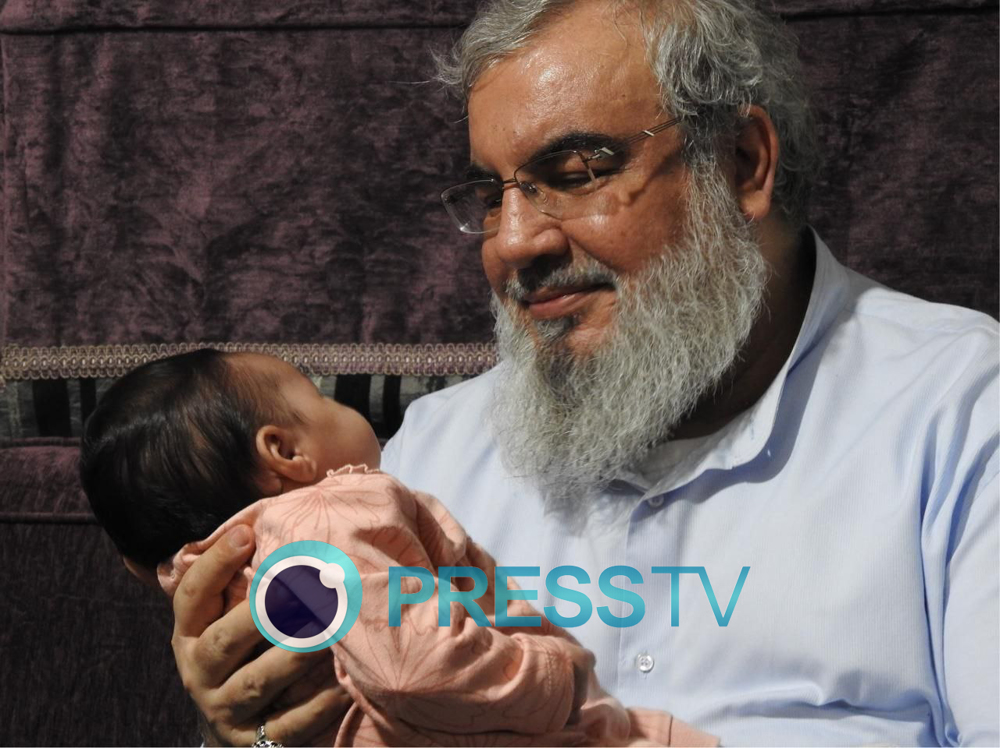
Last month, the Israeli regime was forced to seek a ceasefire deal as it failed to achieve any of its military objectives despite the unchecked and brutal aggression against the Lebanese nation.
Hezbollah fighters demonstrated steadfast bravery, preventing thousands of Israeli soldiers from advancing into Lebanese territory, not even a single border village, Zainab stated.
A stronger resistance
Israel assumes that eliminating a key leader of the resistance front in the region can deter the wider resistance movement and bring it to an end, however, that is a far-fetched dream, she noted.
In targeting Sayyed Hassan Nasrallah, Israel assassinated a leader who stood against neo-colonialism—a system that exploits the region’s resources for US-Israeli interests. The martyred leader understood the critical importance of resisting such hegemonic regimes and demanding justice.
“He saw it as his duty to defend Lebanon against Israeli occupation and to stand in solidarity with the oppressed Palestinian people, who continue to face horrific violence after 14 months of genocide,” Zainab stated, referring to the ongoing genocidal war that has killed nearly 45,000 Palestinians so far.
The martyrdom of Sayyed Hassan Nasrallah has only fueled the resistance movement against the Israeli occupation and its Western hegemonic backers, Zainab asserted.
“It has strengthened its resolve and inspired even greater commitment to fighting against occupation and neo-colonialism in Lebanon and the surrounding region.”
Dec. 14: ‘Axis of Resistance’ operations against Israeli occupation
‘He lived among people’: Zainab Nasrallah reflects on her iconic father’s life and legacy
Islamophobic graffiti found in Sydney suburb sparks outrage
VIDEO | Press TV's News Headlines
London Downing Street rally for Palestine
Prospects for Iran in global halal market
VIDEO | Gaza plight takes center stage at Tehran's 18th Cinéma Vérité Film Festival
'Syria will be liberated': IRGC chief echoes Leader's sentiments


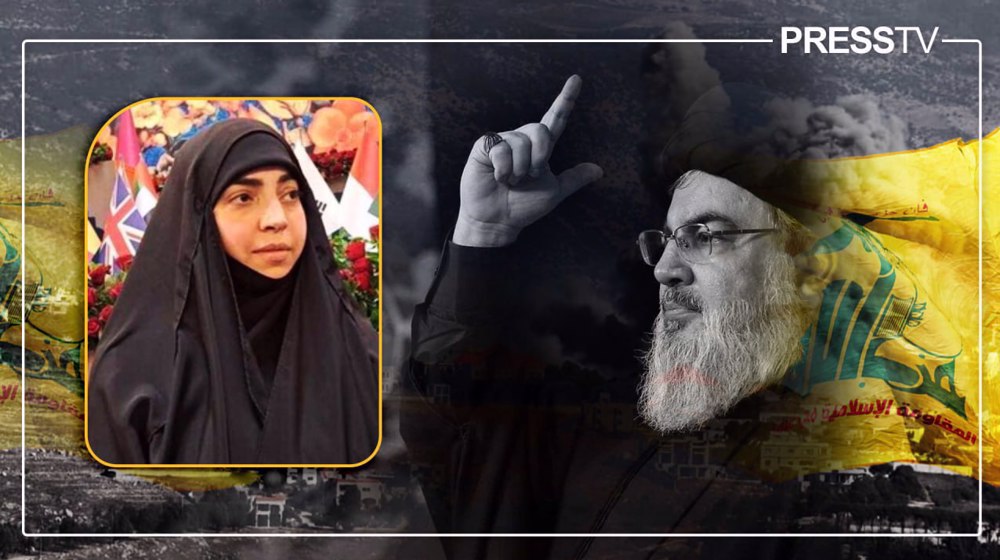
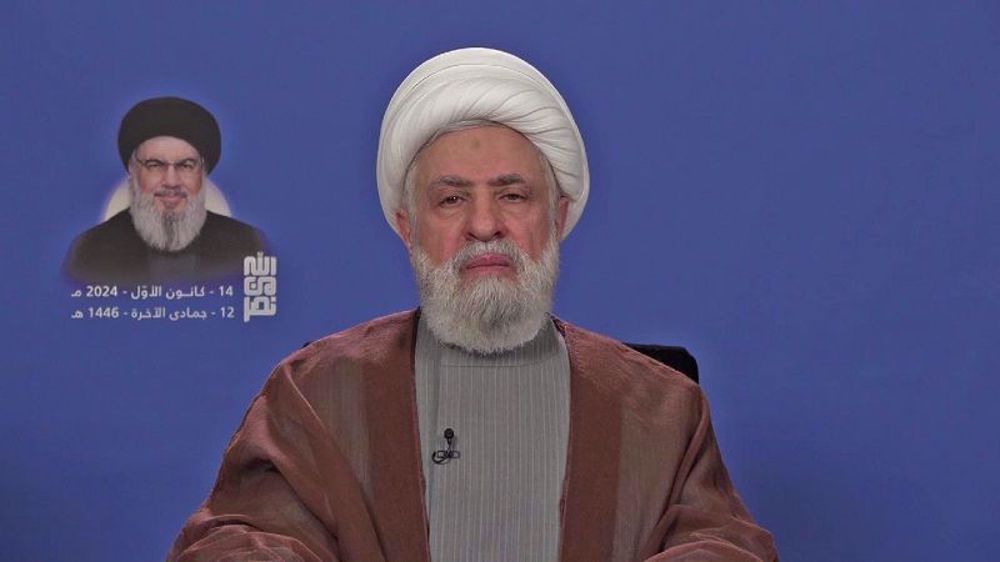

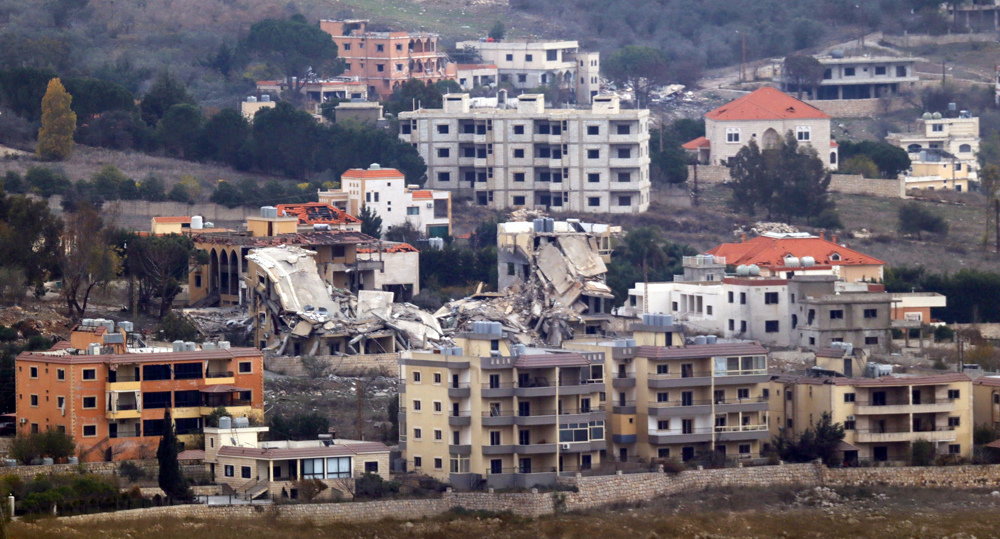



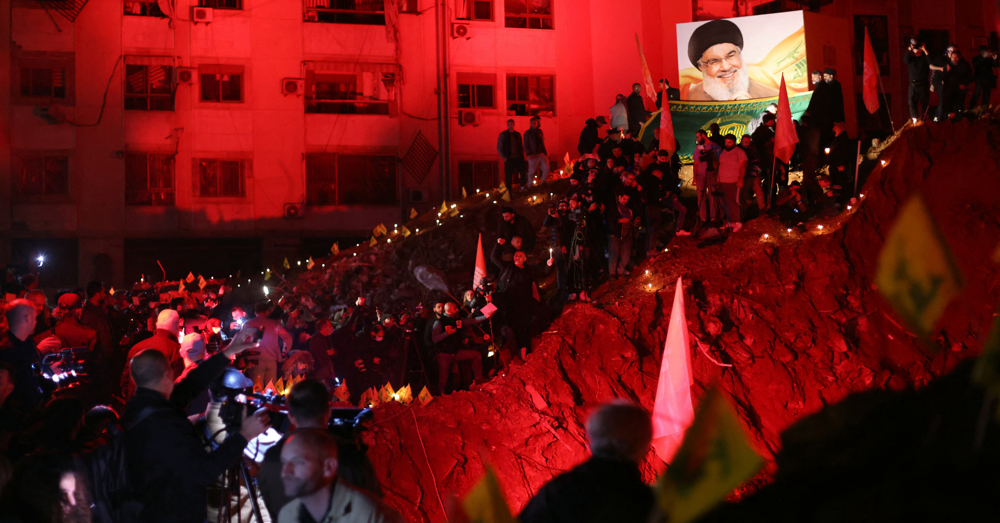
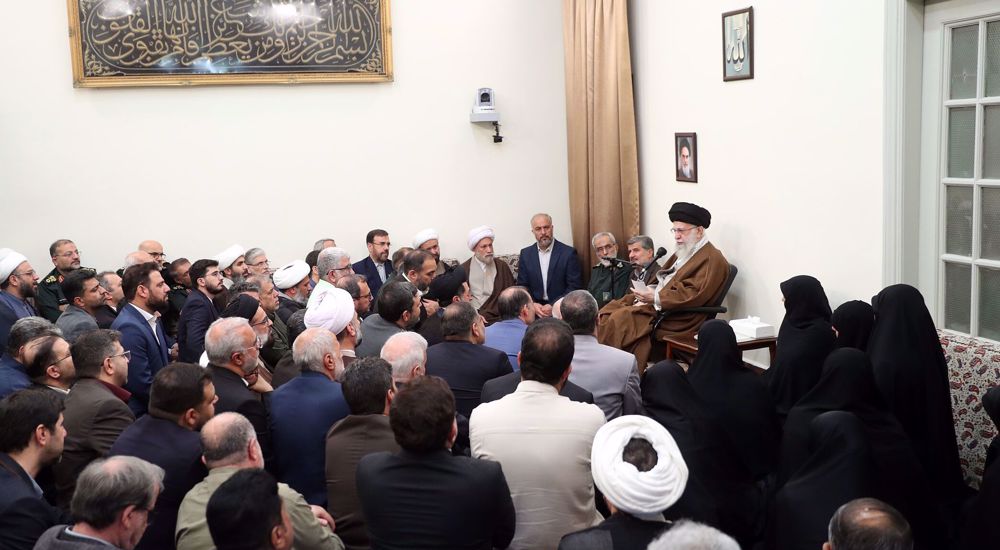
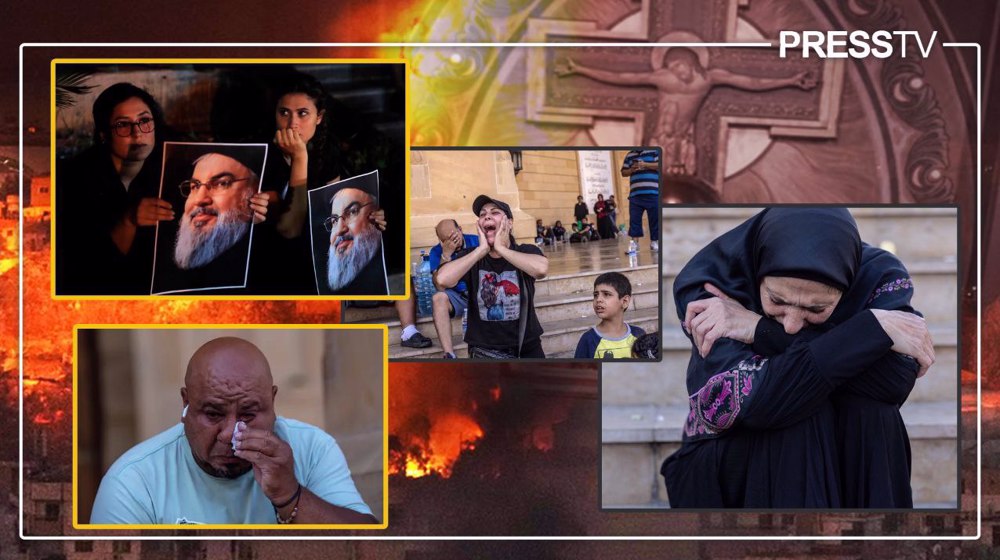
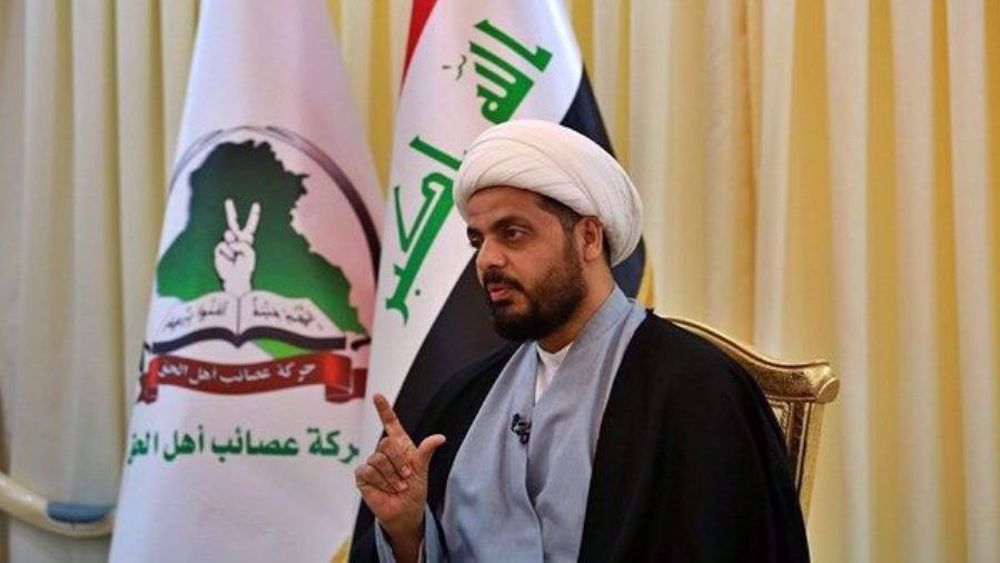
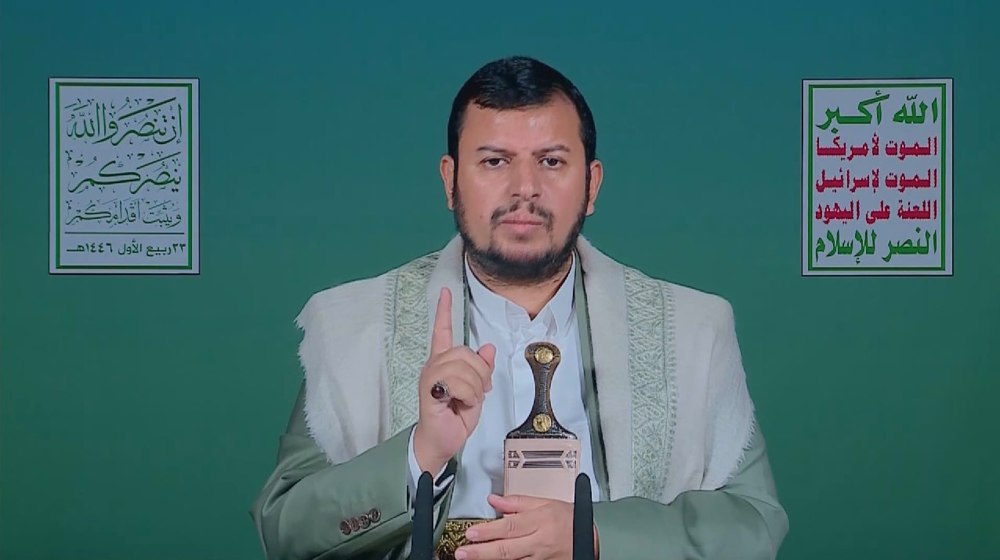

 This makes it easy to access the Press TV website
This makes it easy to access the Press TV website